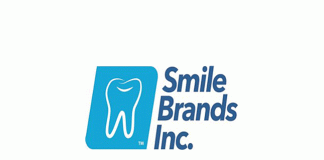Editor’s note: Vincent Cardillo of Maeva Dental Advisors and his team, including Paula Fontana, put together this great human resources and operations FAQ for all dental professionals who are finding themselves in uncharted waters. It is reprinted here at DSO News with permission.
Over the past 10 days we have been preparing our clients with a crisis action plan that will enable them to evaluate their business and operational priorities, financial impacts, workforce needs, marketing strategies and communication plans that will need to adjust both in the immediate future and longer term, possibly.
This is a collaborative effort that requires an “all-hands-on-deck” approach as every part of the practice is being affected not only by the virus itself, but the direction being given by the ADA, along with State and Federal regulations.
This plan we are building and executing on requires that we first look at the immediate impact that the Coronavirus is having on our employees, patients and broader community including external partnerships and resources. We are addressing those needs first, and then working toward next steps to maintain to maintain business continuity in a rapidly changing environment.
Everyone is in reactive mode. We understand that because many people have had little or no experience preparing for it. The good news is that we have a multitude of competent resources to draw from that are helping to inform this plan for each of our dental clients.
To help decipher some of the information that you may be getting, here are some of the most frequently asked questions:
FAQs:
Human Resources:
Q. What should I tell my employees about the future of their work status?
A: If you are temporarily reducing hours of your employees or laying-off employees who will not be critical during this time, it’s best to provide them with an explanation of the reason for the change, access to unemployment benefits and contact information for COBRA. The more information you provide to meet their immediate needs for income and protection, the better.
Q: What’s the difference between a layoff and a furlough?
A: If you are temporarily reducing hours of your employees or laying-off employees who will not be critical during this time, it’s best to provide them with an explanation of the reason for the change, access to unemployment benefits and contact information for COBRA. The more information you provide to meet their immediate needs for income and protection, the better.
Q: What’s the difference between a lay-off and a furlough?
A: Workers who are laid off are essentially terminated from the practice for reasons other than gross misconduct, such as a financial downturn. You should provide them with notification of unemployment benefits as well as COBRA to assist in the continuation of their healthcare benefits. Furloughed workers are temporarily laid off or have had their hours reduced for the same reasons as laid off workers. They may also be referred to as “underemployed” and are also eligible to apply for unemployment benefits. In the case of a furloughed worker, they will typically retain their benefits such as healthcare. It is important to note that some employees with reduced wages may not find it feasible to continue to pay their portion of the healthcare coverage and may opt to consider other plans. The best course of action is to provide any impacted employee with information on COBRA and unemployment benefits if their hours are reduced so they can determine the best options for themselves and their covered dependents.
Q: I am paying the employer share of the premiums for healthcare currently. But not sure I can do this long term. What do I do?
A: You need to contact your Healthcare Provider and let them know you will be terminating benefits for a specific group of people and ask them to guide you through the process. Your employees will have 60 days to decide if they want to remain on their plan and pay the full premium themselves or if they want to select another healthcare program in the healthcare marketplace. Each state offers different options under the ACA. Please see: https://www.dol.gov/general/topic/health-plans/cobrafor more information on COBRA
Q: If I need a core team of people for emergency care, can I tell people they have to come to work?
A: No. It’s best to ask people who you may need if they are willing to help. This allows those who are concerned about contamination to exercise their right to protect themselves and others.
Q: Can I change my exempt employees pay rate to save expenses?
A: No. But we know that you may need to contain these payroll expenses short term. We do recommend that you indicate that you are reducing the scheduled days that your exempt employee is working and that they will be paid for those specific days only. Reducing an exempt employee’s salary as a result of an expense management issue is not a short-term strategy that is allowed under FLSA. However, it may be something you may consider as part of a longer-term strategy. We advise you to consult an Employment Lawyer on this and any employment related matters.
Q: What are the most recent changes to the FMLA and PSLA as of March 20, 2020?
A: The most significant changes are the passing of the Emergency FMLA and Emergency PSLA. The latest revisions include the expansion of these services to all businesses with less than 500 employees and also cover part-time employees who have worked less than 30 days for your practice. The following link provides you with very specific detail on how this will be carried out effective April 2, 2020 -December 31, 2020. This also addresses tax credits that will be available. https://www.fmlainsights.com/president-trump-signs-emergency-fmla-leave-and-paid-sick-leave-in-wake-of-coronavirus-pandemic-here-are-the-details/
Please Note: Under these stressful circumstances, Maeva will waive its initial consulting fee for HR services for anyone needing additional information and to discuss their individual situations with a Maeva HR Advisor.
Operations:
Q: Do I need to shut down my practice if the ADA is only recommending that we operate in emergent care mode only?
A: No. However, it is recommended that you begin planning for that if it does become a directive from your State Government and the Board of Dentistry.
Q: If I decide to stay open, what are some precautionary measures to take?
A: The CDC has issued important guidelines. You need to follow their direction on this. The ADA recently released their recommendations based upon the CDC guidance: https://www.ada.org/en/publications/ada-news/2020-archive/february/ada-releases-coronavirus-handout-for-dentists-based-on-cdc-guidelines
Q: What are my options for delaying payments for insurance coverage such as Malpractice?
A: Some insurance providers may offer a DEFERRAL on paying outstanding invoices during this critical time without late payment penalties. Please check with your provider on options or payment plans that they may offer.
Good News and Random Acts of Kindness:
- We have a client who told us their landlord advised them not to worry about their rent this month, and she’s using that to pay her employees an additional severance amount
- Teledentistry is billable in MA: www.masshealth-dental.net has been updated to provide a place of service option telehealth (02). Hopefully more states will follow suit!
- Maeva Consultants will continue to work with you on a daily/weekly basis to guide you through this process and help you navigate the process successfully.
What’s Coming:
- We will continue to update you on HR topics including State and Federal Regulations including Emergency Leave Acts, financial resources, 401K options, communications, and best practices.
- State by State updates on closures, directives and resources
- Recommended webinars, teleconference calls and Maeva initiatives to support our industry
- More good news – Stay positive! This will have a beginning, middle and end, and we will be stronger than ever, smarter than ever and better prepared for the future!
Important Contacts:
Vin Cardillo [email protected]
Paula Fontana [email protected]
Mike Disa [email protected]
Kevin Wheeler [email protected]











